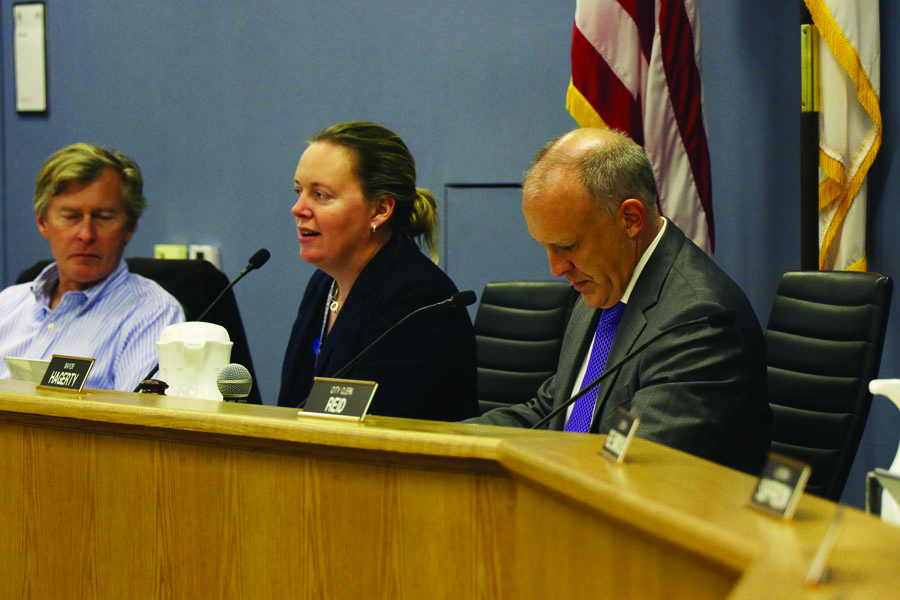City could lose up to $20 million in revenue
Daily file photo by Christopher Vazquez
Interim City Manager Erika Storlie. Storlie has held her position for over a year while the city has continued its search for the next city manager.
April 28, 2020
Interim City Manager Erika Storlie estimated the city could lose between $11 million to $20 million in revenue because of the economic freeze brought on by COVID-19. The financial hit amounts to 10 to 20 percent of overall revenue, Storlie said at the Monday City Council meeting.
“It’s been quite devastating,” Storlie said. “A lot of our major revenue sources (such as parking and ticket revenue, recreation programs, and sales/income taxes) are going to take immediate direct hits.”
Based on calculations, city staff predicted a level of recovery by mid- to late summer. If stay-at-home orders were extended into June, however, the financial damage could be even more catastrophic. Storlie also said that the budget impact is expected to extend into 2021 and further.
Storlie emphasized the discussion around the pandemic’s effects were predictions, as there is still so much that is unknown.
Chief financial officer Hitesh Desai said that if around $11 million was lost, the best-case scenario, Evanston’s projected year-end balance would be $6,474,287. However, in the worst-case scenario, a loss of around $20 million, the city’s balance at the end of 2020 could be about -$3,477,755.
Desai also reviewed tax projections before and after COVID-19, all of which have taken severe hits. This includes taxes on sales; state income; hotel, amusement, and liquor; and transportation and parking.
The aldermen considered sectors the city could cut back finances. The city is already attempting to save money through its personnel, which are responsible for some of its largest costs. Evanston placed a hiring freeze on all nonessential employees and laid off eight full-time, non-union employees and Parks and Recreation part-time employees. Currently, 51 full and permanent part-time positions are vacant.
Ald. Cicely Fleming (9th) inquired about pay equity for city personnel, and added that taking time off would not hit high-wage employees as hard as it would low-wage employees.
Storlie said employees earning over $100,000 per year may experience pay cuts, and furlough days would also be a part of an attempt to equalize the impacts.
If the city made reductions to non-personnel expenses and interfund transfers, with the help of a $1.6 million budget surplus from 2019, total budget savings would come out to around $6.4 million, according to budget coordinator Kate Lewis-Lakin. Still, Lewis-Lakin said even with these cutbacks, the deficit is estimated to be $4.2 million.
“We still have a lot of work to do,” Lewis-Lakin said. “We’re going to talk about how we’re going to continue to approach this process going forward with some of the other options that are on the table.”
Assistant city manager Kimberly Richardson will take the lead in evaluating current service needs and cutbacks on costs.
According to Lewis-Lakin, some hard choices will have to be made in order to balance the budget.
Some options to cutback have already been proposed, such as delaying the city’s reparations fund until January 1, 2021. Ald. Rue Simmons (5th) expressed disappointment in the city’s consideration of this as a solution.
“We’ve worked as a community to move forward with that goal,” she said. “The trauma of COVID-19 and its disparity in the infection, the financial trauma, that’s devastating the black community that is still in recovery from the 2008 recession, further highlights the need for us to prioritize this work.”
Email: [email protected]
Twitter: juliaa_grace












